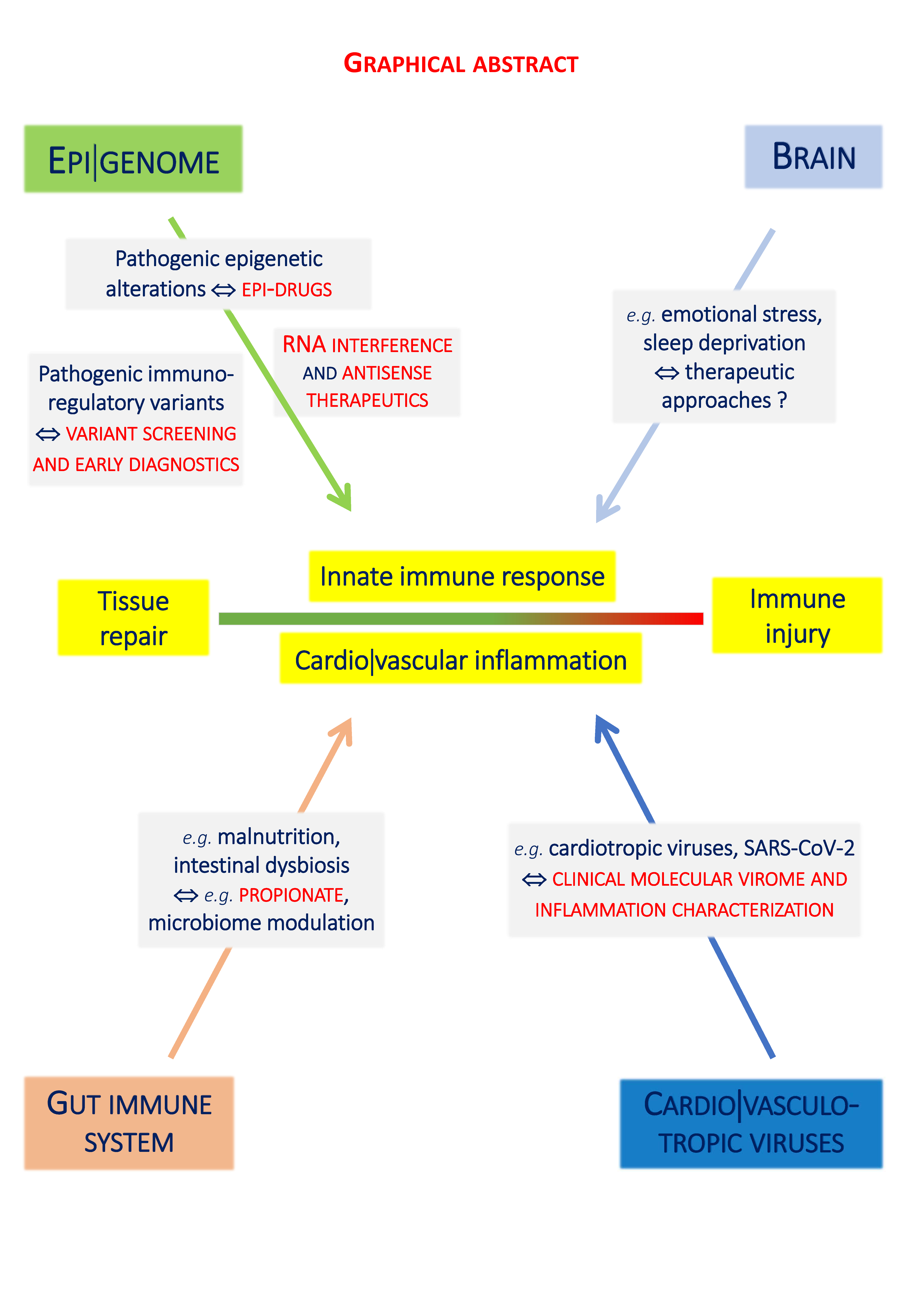During the past few years unexpected developments have driven studies in the field of clinical immunology. One driver of immense impact was the outbreak of a pandemic caused by the novel virus SARS-CoV-2. Excellent recent reviews address diverse aspects of immunological re-search into cardiovascular diseases. Here, we specifically focus on selected studies taking ad-vantage of advanced state-of-the-art molecular genetic methods ranging from genome-wide epi/transcriptome mapping and variant scanning to optogenetics and chemogenetics. First, we discuss emerging clinical relevance of advanced diagnostics for cardiovascular diseases - includ-ing those associated with COVID-19 - with a focus on the role of inflammation in cardiomyopa-thies and arrhythmias. Second, we consider newly identified immunological interactions at or-gan and systems level which affect cardiovascular pathogenesis. Thus, studies into immune in-fluences arising from the intestinal system are moving towards therapeutic exploitation. Fur-ther, powerful new research tools have enabled novel insight into brain – immune system inter-actions at unprecedented resolution. This latter line of investigation emphasizes the strength of influence of emotional stress - acting through defined brain regions - upon viral and cardiovas-cular disorders. Several challenges need to be overcome before the full impact of these far-reaching new findings will hit the clinical arena.

